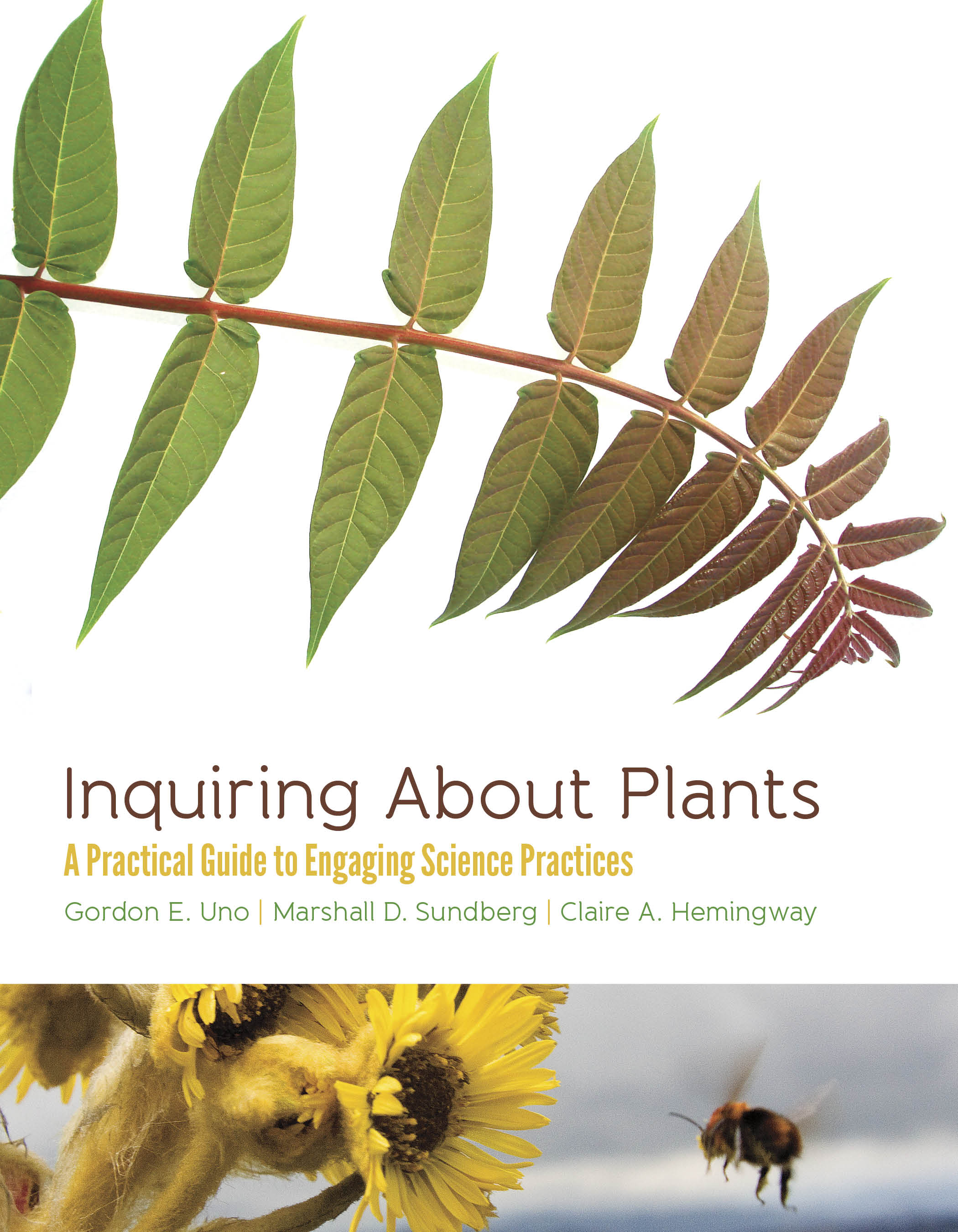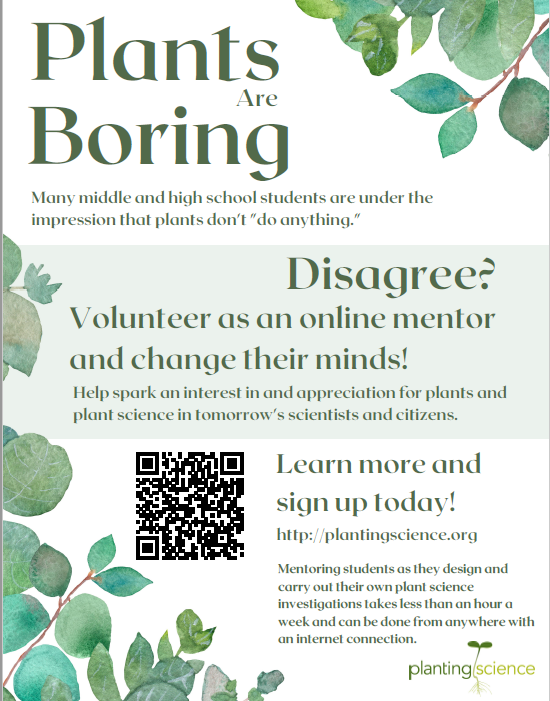Features
Featured Post
Hi Joey, Piper, Lauren, and Ryan,
I like your team's hypothesis, it is straightforward and testable!
About the observations:
A. Have you guys been watering the bottles with the same amount of water?
B. What kind of fertilizer are you guys using? Are they solid (like grains) or are they aqueous (dissolved in water)?
C. It takes time for seeds to germinate and make it all the way up to the soil surface, so I'm sure you guys will see more seedlings very soon!
Here is a question to think about: why do you think fertilizers make plants grow better?
To answer you guys' questions:
1. I was always fascinated with the different morphology (physical traits) of different plants! There are different types of leaves, different flowers, different ways the plants make seeds, and I wanted to know about them all!
2. The color of the bottle shouldn't affect the growth of the plant, unless it is covering the plant, in which case would affect the light that is reaching the plant. Plants photosynthesize with a certain wavelength of light (red), so if the bottle blocks red light from the plant, the plant wouldn't be as happy.
3. I've not personally grown pearl millet, but a quick google search says 4-8ft.
Have a good weekend!
-
It is thorough, has easy to find sections, and is encouraging!
Help us grow!

Your contribution at any level will go directly toward increasing capacity to serve more teachers and students and it will help to sustain the program. Get a print copy of the book Inquiring About Plants: A Practical Guide to Engaging Science Practices by Uno, Sundberg and Hemingway with a donation of $30 or more.
Donate Now
Preparing for the
24-25 School Year?

Teachers! If you're thinking of bringing PlantingScience mentoring into your classroom during the 24-25 school year, applications are now open for BOTH sessions!
To apply, log in to your PlantingScience account and locate the application link under 'Resources'. For more information, check out 'Join as a Teacher' above!
Scientists, this is a great time to update your availability and consider adding Investigation Themes to your preferences. If you are new to PlantingScience, check out 'Join as a Mentor'.
We're looking forward to working with you! Please contact us if you have any questions.
-
Scientist Mentors Needed!
As we grow and continue to pursue our F2 research, we are sending out this appeal to our Scientist community: please spread the word and invite your students, colleagues, and friends to sign up and mentor with us! Mentors range from late undergraduate students to emeritus scientists. Feel free to download our mentor flyer and post it in your institution to encourage others to join us, too!
Testimonials
“I liked that we didn’t know what was going to happen before we did the experiment. Instead of being taught something and then just doing an experiment to prove it, we made an attempt to find out what would happen ourselves.”
- PlantingScience Student
“At every opportunity, all involved kept reminding my students of the process that real science requires. This helped me to convince my students that they are really doing science - not just play acting until some future date.”
- PlantingScience Teacher
“It is a lot of fun interacting with students from an age group I don’t have the chance to spend a lot of time with. It is a good reminder of where public knowledge of plant science stands, and a great opportunity for me to practice explaining key concepts in a simple and straightforward way.”
- PlantingScience Mentor

